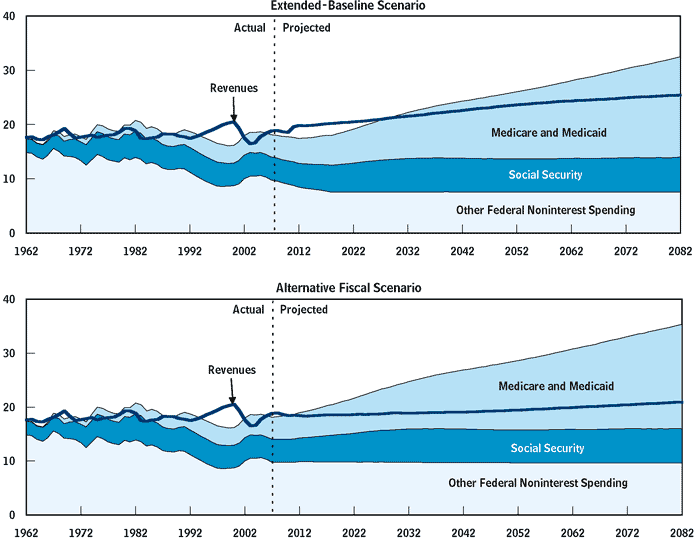Shorter Joe Conason
The Republicans are poopy-heads when it comes to health care.
Seriously, in reading this…this…thing by Conason on health care I have to wonder, exactly has he been lost in space?
For example,
This corporate model is more expensive and less efficient than the government plans that provide care in every other industrialized nation.
And most Americans may have learned by now that such systems prevail in Western countries that aren’t normally categorized as “socialist,” including the United Kingdom, Japan, Spain, Canada, Germany, France, Denmark, Norway and Sweden. All these nations manage to provide their citizens with high living standards, industrial and technological innovation, and broad political and economic freedom, even after 50 years of national health insurance in some form.
Aside from the fact that places like France are talking about implementing more market based reforms in health care, and in England the NHS is hemorrhaging cash at such a rate that they are implementing mandatory waiting times. And lets not mention that implementing waiting times is a spiffy way to move costs of the accountants ledger. After all, a person who has to wait 16 weeks for treatment and suffer a lowered standard of living for that 16 weeks is indeed an actual cost for society…just not one that is directly measured in terms of government budgets or expenditures.
About the only thing he is right about is that health care is broken, but this is true in France, England, Canada, etc. Health care expenditures are rising rapidly just about everywhere one looks. Every country has a health care problem, and that problem is that expenditures are rising faster than growth in GDP.






The bulk of Conason’s post was about the Right in the US using socialism as a bogeyman in an attempt to scare people away from universal health care. Their argument seems to be that if any more government health care programs are implemented we will spiral down into some kind of socialist dystopia. He highlights the examples in the paragraphs you clipped to point out the fallacy of of this argument.
Health care costs are indeed a problem everywhere. What you have repeatedly failed to acknowledge is that the size of the problem is different in different places under different systems.
The US has the highest per capita monetary costs of any country (generally between 1.5x – 2x).
These costs are also growing at a faster rate in the US than most Western industrialized nations from 1980-2003 and faster than almost all for 1990-2003.*
At the very least the financial problem with health care is larger by far in the US than in any other Western industrialized nation. It is past time for you to acknowledge this.
And again the bulk of your criticism of universal systems is spent on the UK, a system no serious person is suggesting we model our system after.
* The latest comparative figures I could find.
What exactly is this golden model of socialized health care that is being proposed? The Clinton “No Insurance, No Job” plan?
When looked at objectively the fact is that all univeral health care countries provide better health care outcomes and at half the cost than does the free market system in the US.
And since they are spending less than half of what we spend on health care they have plenty of room to spend for improvement, if they so choose.
We are not so lucky. We need to cut back on spending and at the same time provide health care to people who do not have it. The only solution is to go to a single payer universal provider program. Nothing else will work. We will have better outcomes and can reduce costs at the same time.
If we had a free market in health care, you might have a point, ken. We don’t.
My own opinion is that characterizing our system, in which as much as 60% of the costs are paid by government, as “free market” while characterizing the French system in which 80-90% of costs are paid by government as “socialized” is absurd. Both are hybrid systems and I believe that any conceivable set of reforms will retain a hybrid system here.
But, considering how much of U. S. costs are already paid by government, the idea that we’ll reduce costs by increasing the proportion paid by government should be viewed with skepticism. I’d like to see some good evidence that’s the case.
My own view is that, absent serious reforms in how health care services are delivered in this country (not just how they’re paid for), no system consistent with public health is affordable.
Steve, one thing that I think is worth considering is the degree to which the U. S. healthcare system is causing costs to rise everywhere. Annually, the U. S. imports a significant number of healthcare professionals from just about everywhere, indeed, without those professionals the situation here would be dire indeed. In some areas as many as 40% of all healthcare professionals are ITP’s (internationally trained professionals, the term of art in the area) and practically all of the increase in the number of healthcare professionals is due to ITP’s.
We compete for those professionals with the UK, France, Germany, Canada, and their home countries and I don’t think it’s too big a stretch to think that results in rising costs everywhere, especially since salaries for healthcare professionals in the U. S. are so much higher than everywhere else, significantly higher than the differences in the prevailing wage rates here and elsewhere would suggest.
The more I look at it the more I see the rise in costs as the simple result of our technological abilities out pacing our ability to pay.
For example, we can put a man on the moon but not all of us can afford to be sent there. We have the technology but not the ability to pay.
We can cure many diseases but can’t afford to cure everyone. The technology exists but not the ability to pay for it.
We are assuming there is a all encompassing fix to this. There is not. We all want too much.
Steve,
You’ve got it entirely backwards. The Republicans have, for decades, been terming any proposal on this subject “socialized medicine”, which to them means roughly the same as the proponents are poopy-heads. Conanson is just pointing this out.
The thing about cutting costs is, how do you do it? If a CAT scan costs $10K per test because it requires expensive components that are consumed by use, then what are you going to do? If there aren’t enough doctors to begin with, and we already pay them more than other countries, capping their wages aren’t going to make things better.
The way I see it, the cost of US healthcare is proportional to the speed and quality of care. We could easily price cap medicine, put 12+ month waiting lists for non-emergency procedures and cut doctor’s wages. But that’s just going to switch one problem (cost) with another (quality). And unlike people living in other countries, any of us who decide to spend more money for better care won’t be able to go out of country to get it.